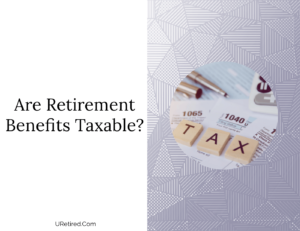Embrace the delightful prospect of a carefree, financially secure future as we navigate through the intricate intricacies of “The Retirement Plan”. This comprehensive guide is tailored just for you – serving as a beacon to light your path towards a well-deserved, peaceful retirement. Filled with insights on effective saving strategies, investment opportunities and tax benefits, this resource is designed to help you manage your finances with confidence, ensuring that your golden years are indeed golden.
Check out our recommended retirement gifts!
Understanding Retirement Plans
A retirement plan is an essential financial strategy that involves setting aside funds to support yourself after you retire from the workforce. It’s crucial for your future financial security as it helps to ensure you have a steady stream of income once you stop working. Retirement plans are beneficial as they help manage and protect your wealth, making your golden years more enjoyable and stress-free.
Definition and importance of a retirement plan
A retirement plan is a saving or investment program set up to accrue funds for retirement. These plans can be set up by individuals, employers, or even the government. But why is a retirement plan important? Firstly, it’s a path to financial independence in your later life. It offers financial cushion against unexpected emergency costs. Most importantly, it helps you to maintain your current lifestyle even after you retire.
Different types of retirement plans
There are several types of retirement plans available, each with different features and benefits. Individual retirement plans, like the Traditional IRA and the Roth IRA, allow you to make contributions on your own and offer several tax advantages. On the other hand, employer-sponsored plans like a 401(k) or 403(b), provide a platform where both the employee and employer can make contributions, often enabling higher savings potential compared to IRAs. For low-income earners, there’s a Simple IRA in which both the individual and employer can contribute.
Benefits of a good retirement plan
A robust retirement plan offers multiple benefits. It can provide a steady inflow of income during retirement, reducing the dependency on others for financial support. Additionally, many retirement plans come with tax benefits, which can either reduce your taxable income now or provide tax-free income during your retirement. Over time, the power of compounding can turn your modest savings into a sizeable nest egg.
Starting Your Retirement Plan
It’s never too early or too late to start a retirement plan. However, starting early means the compounding effect works in your favor, providing a larger fund when you retire.
Determining the right time to start a retirement plan
Ideally, the right time to start a retirement plan is as soon as you start earning an income. Early starters enjoy the magic of compounding which is the growth of both the initial savings and the interest reinvested from your initial savings.
Identifying retirement goals
Before you start saving, identify your retirement goals. These might include travel, buying a home, or supporting a certain lifestyle. Having clear goals will help you determine how much you need to save and devise an appropriate saving and investment strategy.

Check out our recommended retirement gifts!
Components of a Retirement Plan
Understanding the core components of a retirement plan is a significant step towards formulating a successful plan.
Income: Understanding the role of pension, social security, and other income sources
Your retirement income will come from various sources, such as pensions, social security, and possibly a part-time job. It’s important to understand each of these sources and factor them into your retirement planning.
Investments: Common investment vehicles for retirement
Investments form a crucial part of any retirement savings plan. You could consider investing in stocks, bonds, mutual funds, or real estate, depending on your risk tolerance and financial goals.
Expenses: Estimating retirement living costs
Understanding your retirement expenses is key to saving adequately. You need to think about necessities like food and housing, but also consider possible healthcare costs and leisure activities.
Choosing the Right Retirement Plan
Choosing the right retirement plan depends on your personal circumstances, plans, and interests. It’s good to seek for professional guidance, but you need to understand the underlying concept, benefits, and drawbacks of each plan.
Factors to consider when choosing a retirement plan
Several factors influence the choice of a retirement plan. These include your current age, expected retirement age, current income, expected retirement income, and the level of risk you are willing to bear.
Comparison between different types of retirement plans
Conduct a thorough comparison of the different plans before making a choice. This involves understanding the specific terms, benefits, and drawbacks of each plan.

Saving for Retirement
Success in retirement planning depends on disciplined saving.
Strategies for saving towards retirement
There are several ways to save for retirement. You could set up automatic contributions to your retirement account, increase your contributions as your income increases or invest in a diversified portfolio.
How to maximise your retirement savings
Maximising your retirement savings involves taking advantage of compounding, maximising employer contributions, and taking advantage of tax breaks related to retirement savings.
Investing for Retirement
Investment is a crucial element of a retirement plan. A well-planned strategy can significantly increase your retirement savings.
Risks and benefits of investment options
Each investment option carries its unique risks and rewards. It’s crucial to understand these aspects before making an investment decision.
Balancing risk and reward in retirement investing
Balancing risk and reward involves investing in different asset classes to spread the risk and keeping an eye on market trends.
Retirement Plan Contribution
Whether it’s an employer-sponsored plan or an IRA, understanding the contribution limits can help you maximise your savings.
Understanding contribution limits
There are defined limits on the amount you can contribute to your retirement plan each year. Familiarising yourself with these limits can help you plan better.
How to maximize retirement plan contributions
One way to maximise your retirement contributions is to take full advantage of employer matches in your 401(k).
Managing Your Retirement Plan
Your retirement plan needs monitoring and adjustments as personal circumstances and market conditions change.
Regular monitoring and adjustment of your retirement plan
Regularly reviewing your retirement plan helps you stay on track with your savings and align with your retirement goals.
How to handle retirement plan during employment changes
If you change jobs, you might have the option to roll over your 401(k) to your new employer’s plan or into an individual retirement account.
Tax Implications of Retirement Plans
Many retirement plans offer tax benefits. Understanding these benefits can help you minimise your tax liability.
Understanding tax advantages of retirement plans
Some savings and investment plans offer tax-free growth or tax-free withdrawals, while others allow you to deduct your contribution on your tax return.
How to minimize tax liability on your retirement income
One way to reduce your tax liability is to diversify your retirement savings in both tax-deferred and tax-exempt accounts.
Preparing for Unexpected Retirement Challenges
Planning for retirement also involves preparing for unexpected costs, such as health care or a sudden decrease in income.
Planning for health care costs in retirement
It’s crucial to factor in health care costs in your retirement plan. You can do this by considering medical insurance or setting aside a specific amount for medical emergencies.
Dealing with potential reduced earning power
Your earning power might reduce in your later years. It’s advisable to plan for a possible income cut by having a solid emergency fund and diversifying your income streams.
In conclusion, planning for retirement is critical for everyone. Understanding and exploring different components and concepts of retirement planning can ease the stress attached to post-retirement financial concerns and bring financial security during your golden years.



